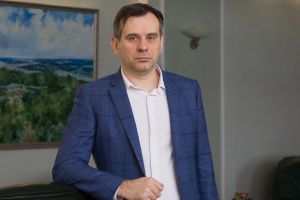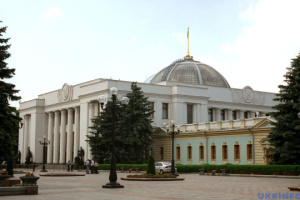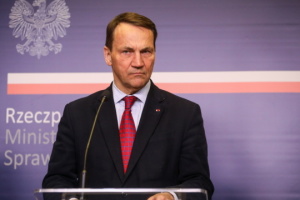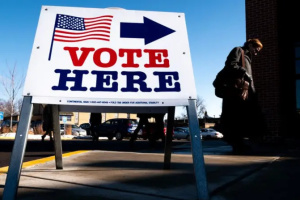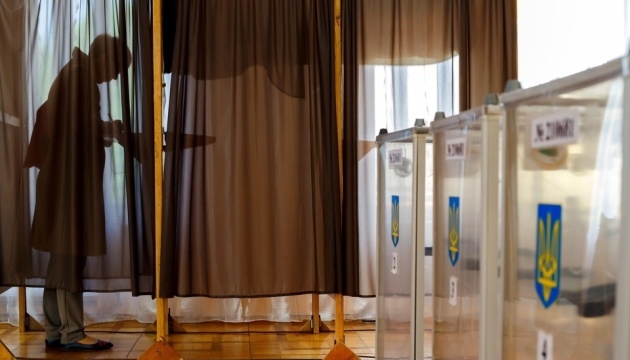
Parliamentary elections in Ukraine: single-party majority and other options
The campaigning in the elections scheduled for July 21 has come to an end. Politicians have a few hours left to convey their truth to the voters, to persuade and win them over. Of course, this is the end of the great political cycle that was associated with the old elites and their influence on Ukraine. What will the new cycle be and will it become new in essence? What are the different political forces’ chances? Let's try to figure it out.
How it all started
The circumstances of the announcement of snap parliamentary elections in Ukraine and the presence of a certain constitutional-legal conflict immediately tinged them with some farfetchedness and conjuncture. It is clear that the newly-elected president had to take a strong political step on the inauguration day. And he did it, backed by certain demand of the society. Another thing is that one cannot but see the obvious fact that snap elections were, primarily, advantageous to the very newborn political party of the president.
Why did everyone agree?
However, most elites, without any problems, agreed to this political action, each at their own discretion. The newly-elected guarantor of the Constitution needed a loyal Parliament, and if regular elections were held in late October, the result could be not unpredictable but worse due to the natural rating decline. Meanwhile, ex-president Petro Poroshenko needed snap elections as he aimed to stay in active politics and consolidate as many votes as possible garnered in the presidential election (24.5%) around the renewed political project – the European Solidarity party. Yulia Tymoshenko (the Batkivshchyna Party) had nearly the same motivation as the presidential race was most likely the main disappointment in her political life, while the third result in them (13.4%) eloquently spoke about the possibility of a serious representation in a future parliament. The so-called "revanchists" (the political forces that did not support the 2014 Revolution and regard the country's European integration as a wrong path) also saw the chance to expand their own electoral field thanks to the activity of voters and created campaign headquarters. The rivals in this niche (the Opposition Platform – For Life and the Opposition Bloc) could not lose such a chance. Politicians like Anatoliy Hrytsenko (the Civic Position party) and Oleh Liashko (the Radical Party) desperately needed snap elections to stay in the political process, converting the result received in April in the entry into parliament. Head of Government Volodymyr Groysman got a chance to finally become an independent politician.
Have we seen any “new faces”?
Special mention should be made of the so-called "new political forces", "new faces", whom everybody in Ukraine was waiting for. The main of them is the party of the new president that has the same name as TV series The Servant of the People, where Mr Zelensky played the role of "a president of the people" and which became almost the key factor in his sensational victory in April. Of course, such a party had not enough time to become a systemic phenomenon, nor yet was able to. In fact, the Servant of the People party is another experiment of Ukrainian politics when very different people gather under the "brand" of the new head of state.
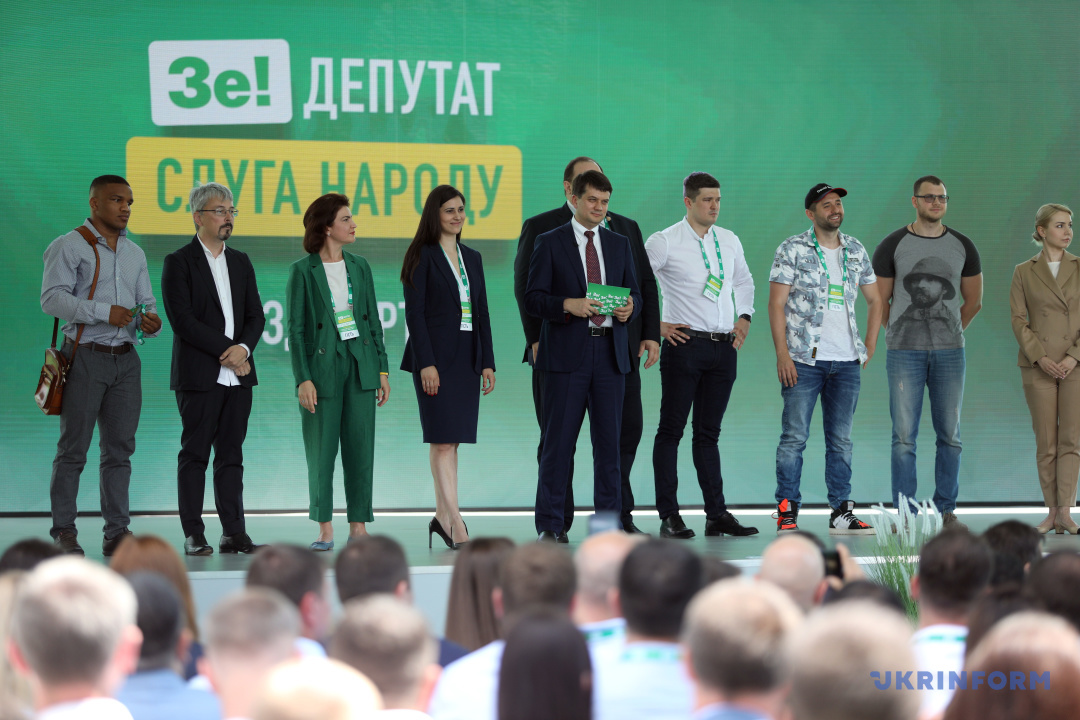
The Servant of the People party of President Zelensky
However, 30% of avid supporters of Zelensky (the result of the first round of presidential elections) were joined by some sympathizers of Tymoshenko, Hrytsenko, Liashko, and also former voters of the Party of Regions who do not see the future with its leaders. Thus, the Servant of the People has got unprecedented for Ukraine rating of 50% of potential votes and absolute leadership in all sociological surveys with an eye on a one-party majority in the Verkhovna Rada of the ninth convocation.
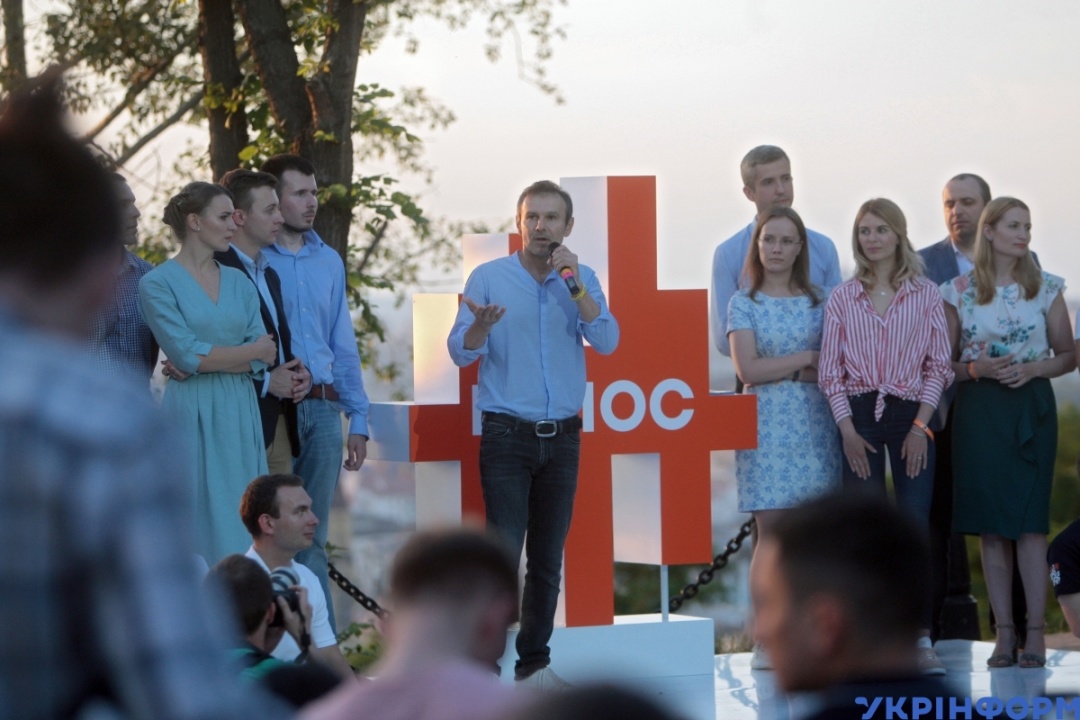
The Holos (Voice) party of Svyatoslav Vakarchuk
Yet another opinion leader from non-systemic ones, rock singer Svyatoslav Vakarchuk had finally to arrive to a decision. His party, the Holos, should have become a response to the frustration of voters of Poroshenko and the People's Front party to the intent that the idea of resetting the state on national and center-right values should not be blamed, and there was a fault of the implementers of that idea, namely the authorities in 2014-2019. Let’s be clear, Vakarchuk has been not convincing. One would think that a group of civil society activists, business representatives, volunteers and veterans is capable of putting "old wine into new bottles." However, the image of a romantic hero in politics played a dirty trick on Vakarchuk: he has turned out quite apparently to be completely not ready for the role of an effective political leader. Of course, this is not a big tragedy for Ukraine, but Vakarchuk also lacked adequate organizational and financial support. And this can cost the Holos Party dearly. Now its sociological rating ranges from 4% (below the threshold) to modest 7-8%. On the edge, as the saying goes.
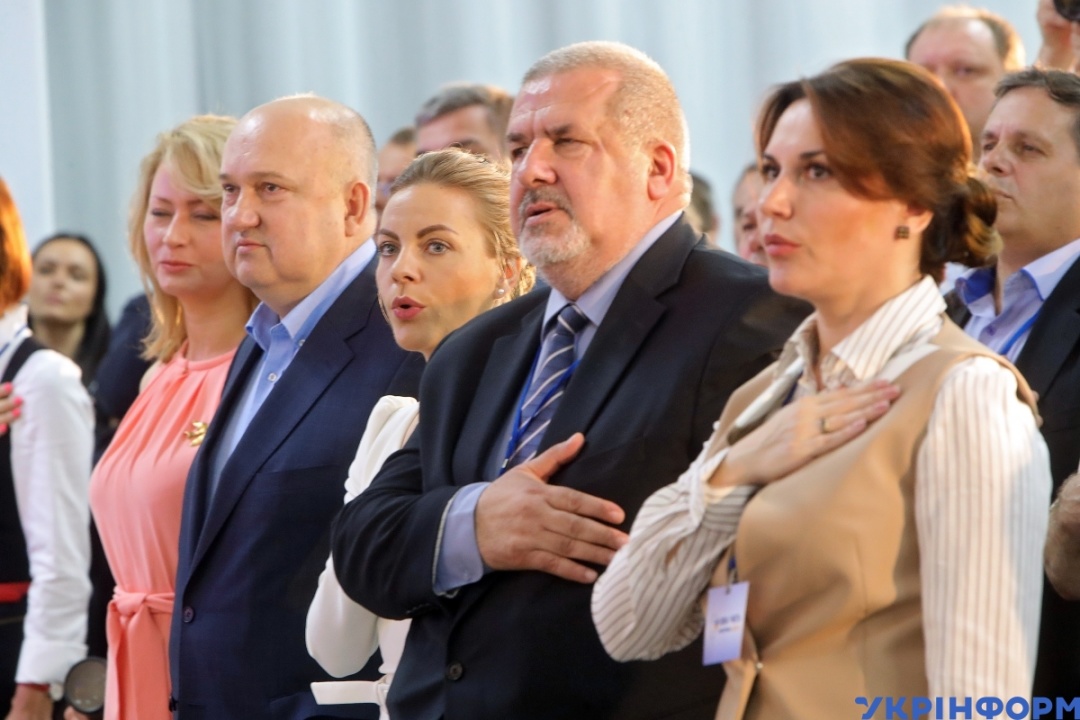
The Strength and Honor party of Ihor Smeshko
Another relatively new project – the Strength and Honor party of former chief of Ukraine’s Security Service, General Ihor Smeshko, of a strong man in other words – might take Ukrainians on a journey in a time machine. A party list was expected to include experienced politicians of Leonid Kuchma's rule – Serhiy Hrynevetsky and Volodymyr Semynozhenko – who have kept up a reputation of effective managers. However, in the end, the party turned out to be a combination of incumbent MPs from several factions. Thus, the effect of Smeshko came almost to nothing. Currently, the Strength and Honor Party teeters on the brink of a 5% threshold in the hope that its supporters (Smeshko unexpectedly garnered 6% of the vote at the presidential election) will rise to the task.
Who will stay in the game?
What about traditional political forces? Each of them made their own conclusions from the April electoral sensation and went different ways to correct mistakes.
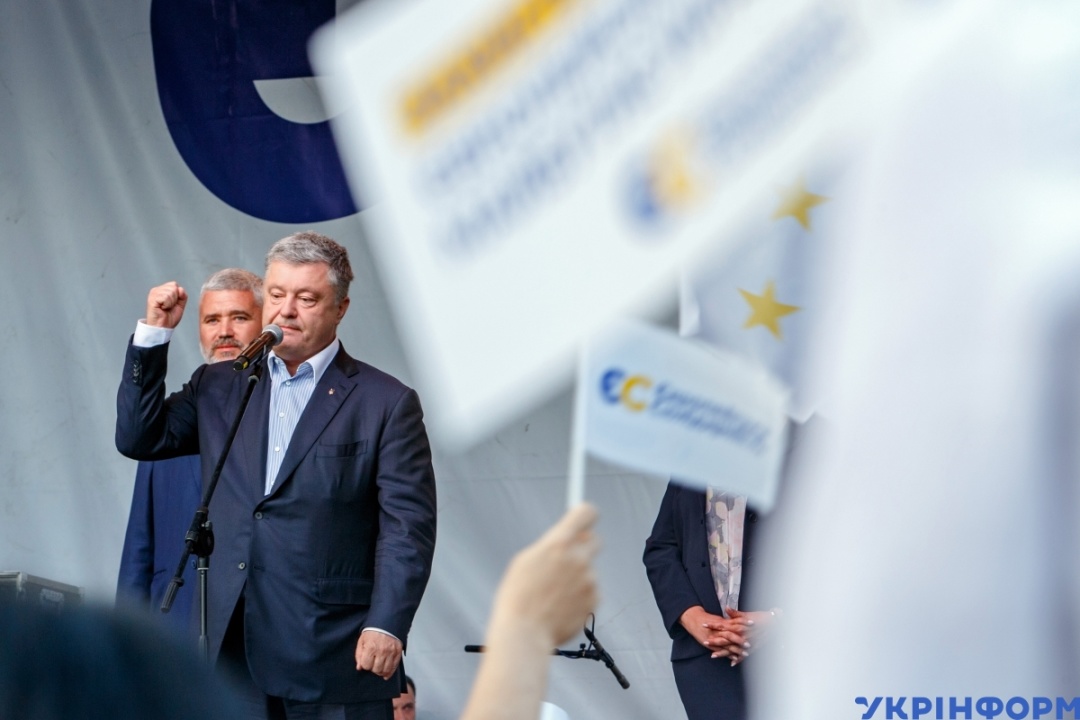
The European Solidarity party of Petro Poroshenko
The Poroshenko's party was rebranded and changed the protective and somewhat aggressive rhetoric to the positive but fundamental program of defending the main achievements of the years of Petro Poroshenko presidency, namely the process of integration into NATO and the EU. So far, its rating ranges from 8% to 11%. The positive moment is a significant update of the party list and breakup with the most notorious individuals from the ex-president’s entourage. So far, Poroshenko is the one and only "locomotive" of the list. If he gets the most out of his 16% garnered in the first round of the presidential election, then the task can be considered fulfilled. However, the polls still show more modest results, some voters go over to the Holos Party, and the struggle for voters in western Ukraine is ongoing.
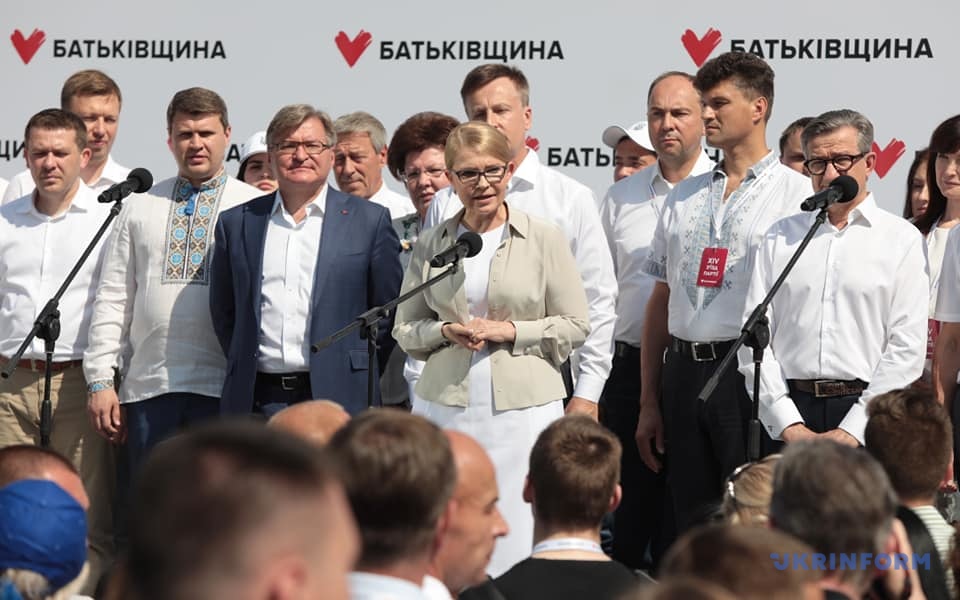
The Batkivshchyna party of Yulia Tymoshenko
The Batkivshchyna party and its leader Yulia Tymoshenko, on the other hand, decided to keep to the proven track and encourage the main regional centers to fight for victory. That was the main principle for forming a party list as the top positions were given to local leaders and tried and true close associates. Tymoshenko’s main "specialty" of the campaign is again her dream of returning to power, this time as "an experienced head of government under a people's president" against the backdrop of her traditional populism. It seems that this became the main mistake of the Batkivshchyna Party as the Ukrainians have not accepted this message and the initial rating of 10% fell down to 6-7%.
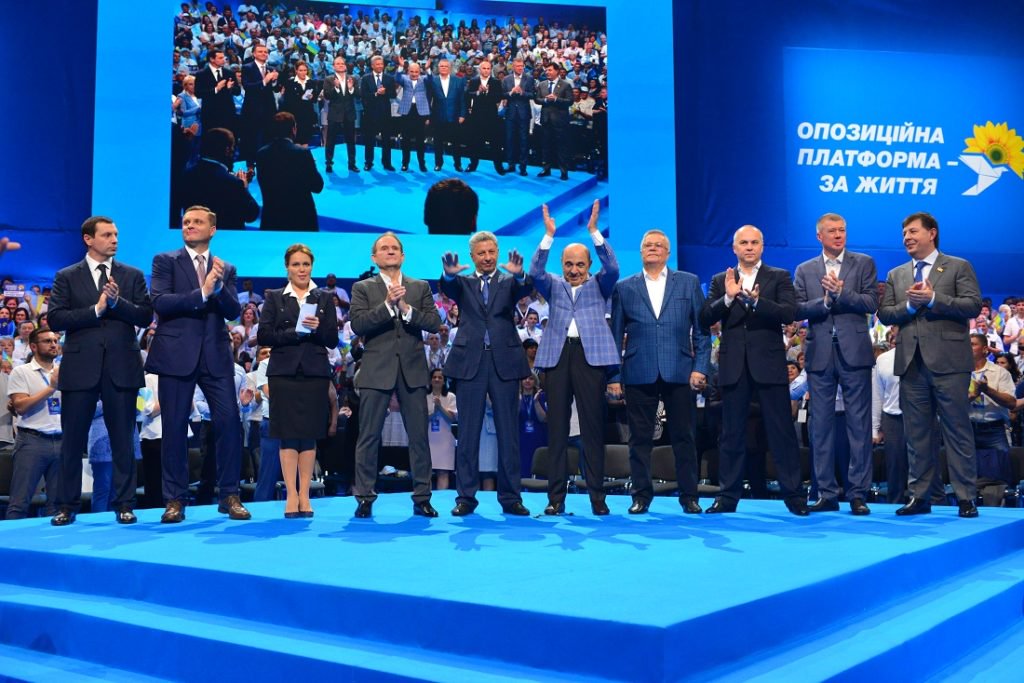
The Opposition Platform – For Life
The Opposition Platform – For Life of Yuriy Boyko, Viktor Medvedchuk and Serhiy Liovochkin, play openly and frankly, demonstrating their pro-Russian orientation. They also chose a direct method of influence expansion: the mass purchase of media outlets and, accordingly, enhanced information attack. The party’s cherry on top is the exclusive support of Russian leadership, which wages an undeclared but quite real war against Ukraine. The result is the following: 10-14% rating in a bid to second place in election results.
It is also necessary to single out a series of parties, which face a threat of not getting to the new convocation of the parliament. And each party has its own failure story.
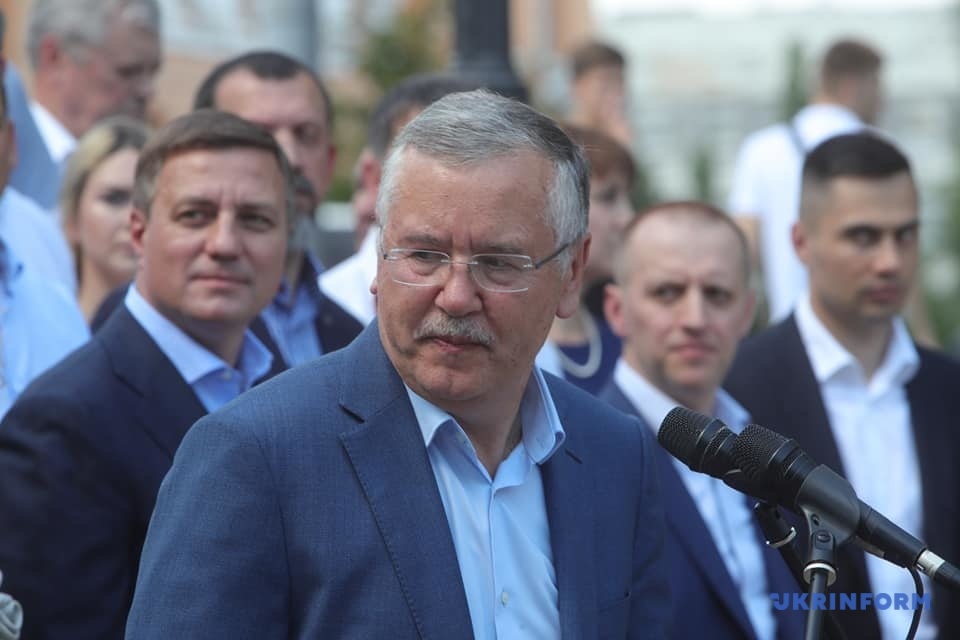
The Civic Position party of Anatoliy Hrytsenko
The Civic Position party of Anatoliy Hrytsenko is an interesting example. Everything seems to go well, there is a leader, the right people who speak the right things. But there is no victory. It seems that unsuccessful "first underdog candidate" campaign slogan, which Hrytsenko used in the 2010 presidential election, serves the political fate of Hrytsenko himself and his party a dirty trick. Many voters respect and trust him (as confirmed by sociological studies), but are uncertain of him and, therefore, do not vote. The current rating of the Civic Position party is 2.5% - 4%, which most likely indicates Hrytsenko’s farewell to the big politics. To avoid this, an unprecedented unity of the Civic Position voters is needed. The main culprit to be blamed for the Civic Position’s rating decline is the aforementioned party of General Smeshko.
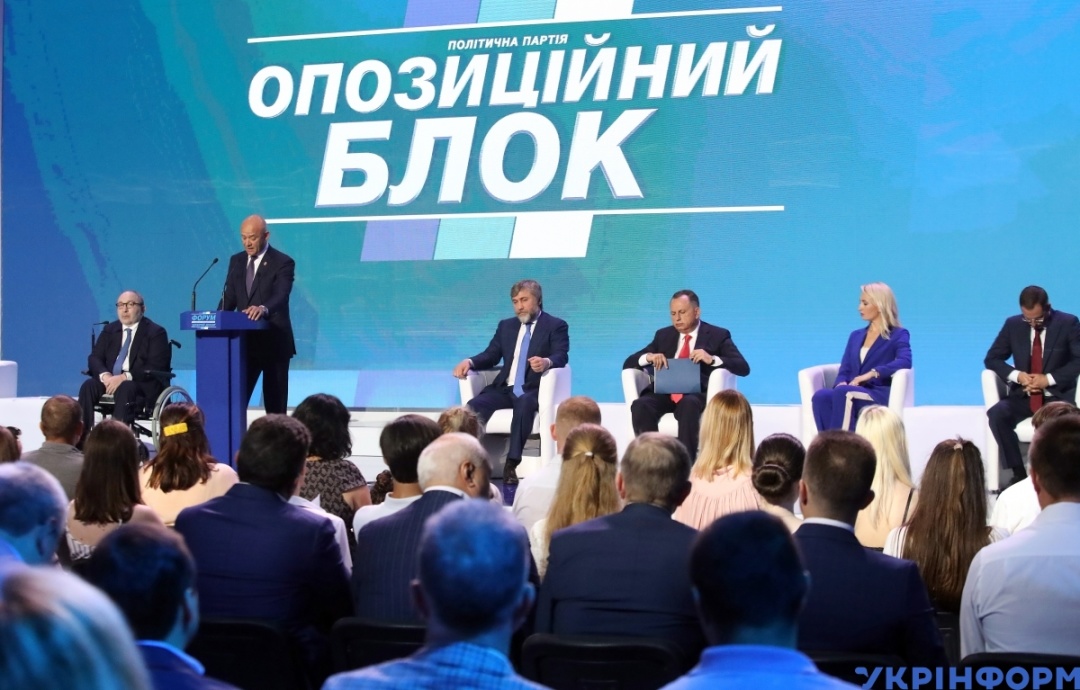
The Opposition Bloc party of Murayev and Vilkul
Similarly, only the voters’ cohesion, as well as the first number in a ballot paper, can help the Opposition Bloc party of Yevheniy Murayev and Oleksandr Vilkul to enter the Verkhovna Rada. The political interests of the richest man in Ukraine, billionaire Rinat Akhmetov, are clearly in evidence behind this party. This group of former leading figures under the presidency of Viktor Yanukovych failed to outflank Yuriy Boyko, the key player of this political camp and, therefore, the only recipient of support from the Kremlin. As a result, the Opposition Bloc Party of Murayev and Vilkul has the rating of 3% and a long chance of overcoming the threshold due to a decrease in the general voter turnout in summer (this concerns, by the way, all the parties "on the verge") and total mobilization of voters related to Akhmetov's enterprises.

The Ukrainian Strategy party of Volodymyr Groysman
The Ukrainian Strategy party of incumbent Prime Minister Volodymyr Groysman may simply not have enough time. It’s one thing if the elections were held at the end of October, but two months are not enough to secure a foothold at the country’s political forefront, given that the main sensation of the elections is still the Servant of the People party and the media resource is obviously poor. Moreover, the reproaches to Petro Poroshenko, the political father of Volodymyr Groysman, look inappropriate. However, Ukraine’s election history remembers miracles. In particular, in the 2014 parliamentary elections, the rating of the People's Front party was 7% two weeks before the election day, but in the end, the party became the winner with a result of 22%. So everything can happen.
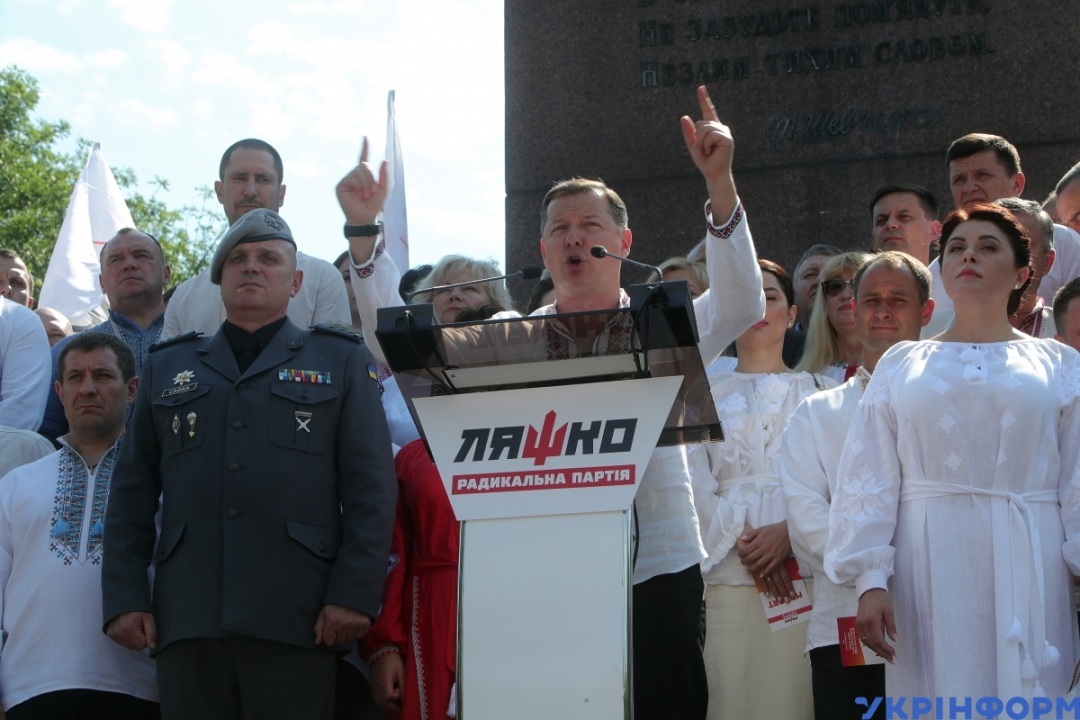
The Radical Party of Oleh Liashko
The Radical Party with its left-wing and populist deviation, which has already tired the voters out, faces serious problems. Taking into account Liashko’s rating of 5.48% in the presidential election, only the commitment of stable voters to this particular political figure can save all the "radicals" from political non-existence.

The Samopomich party of Andriy Sadovyi
The Samopomich party of Andriy Sadovyi with a rating below 1% should be recognized as complete losers. This is also a lesson for the present-day "new faces" as the Samopomich party fell short of the credit of trust in 2014 given to them precisely as to the new faces in the politics. It can not be said that they were not visible or not effective in the parliament, but the commitment of the party’s leadership to the old political practices, already disgusted by Ukrainian voters, was striking. And here we have the expected result: only a miracle can help the Samopomich party on July 21.
What’s next?
The elections will pass and we will have to live further with the new composition of the Verkhovna Rada. What forecasts can we make?
Two political forces participating in the race have outlined the concepts of their vision of Ukraine’s future and, most significantly, have practical experience in these directions and influential allies. These forces are the European Solidarity party and the Opposition Platform – For Life. They are opposite, representing the European and Eurasian vectors, respectively. Other election race participants, while predominantly leaning towards the European direction, prefer to make loud statements.
Everything will depend on the faction of a potential winner — the Servant of the People — and the winners of elections in single-mandate electoral districts whose composition defies analysis so far. The dream of the Servant of the People party about the majority may come true only through the creation of a coalition with a large portion of the little-known candidates who will win in 202 single-mandate electoral districts. President Zelensky and his team do not need the “stones around the neck” in the form of the Batkivshchyna party or the Opposition Platform – For Life. However, after the elections, the country will face serious challenges and threats. And the responsible and predictable legislative body will have to respond to them. Otherwise, not only lawmakers and the president will regret.
Viktor Chopa, Kyiv

